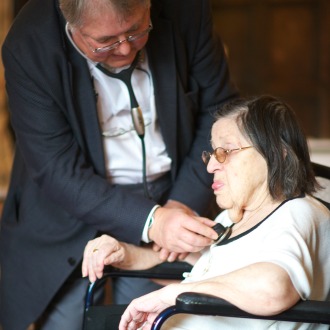GP care plans to prevent hospital admissions not effective, warns CQC

The avoiding unplanned admissions enhanced service has not been effective, according to a report from the CQC.
GP care plans for older patients have ‘varied levels of detail’ and are not seen as an ‘effective document in the wider health and social care system’, a new report into health and care integration for elderly patients said.
The ‘Building bridges, breaking barriers’ report looked at existing integration across health and social care and the impact this has on older people, and also noted that there was ‘very little evidence that GPs were sharing care plans with other providers’.
GPs interviewed as part of the research said the ‘resources they had available to respond to their patients’ health issues were insufficient and felt that they did not have enough time to implement tools and undertake care planning in a way that would be meaningful for all of their patients’, the report said.
The report also gathered information from GPs about their views on standardised assessment tools and how they used them
‘Many GPs reported using the most commonly used standardised assessment tools. However, even among GPs who used these, some had reservations about doing so because they did not know whether they had been formally validated or accredited,’ said the report.
One of the recommendations contained in the review is that commissioners and providers in a local area ensure that information and support sets out details of what services are available, connections between different services, and how accessibility requirements will be met.
The CQC said vulnerable elderly should be added to GP practice frailty registers and this should should then ‘trigger information sharing to support coordinated case management and early intervention across the range of relevant health and social care professionals’.
The warning comes as a Pulse analysis of official figures showed that GP practices that devise care plans for the majority of their most vulnerable patients have higher rates of unplanned admissions.
It also comes as the GPC and Government have agreed to discuss the scrapping of the Avoiding unplanned admissions DES for 2017.
CQC chief executive David Behan said: ‘When staff from different services talk to each other and share information effectively people experience better, safer care. When they don’t, care can become disjointed and it is ultimately the person receiving care who suffers.’
CCQ carried out the fieldwork for the review between October and December 2015 in eight areas: Bristol, Cambridgeshire, Camden, Central Bedfordshire, Hammersmith and Fulham, Portsmouth, Stockton-on-Tees and Wakefield.
Pulse July survey
Take our July 2025 survey to potentially win £1.000 worth of tokens











